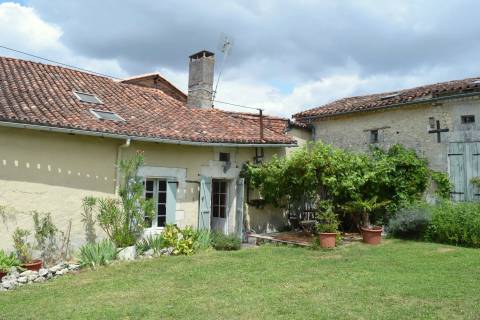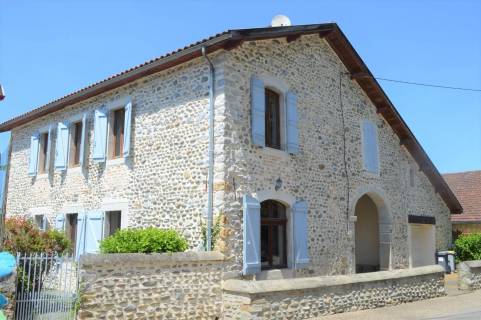Apr 132018
 French media went into meltdown earlier this year when it was revealed that the late, iconic rockstar Johnny Hallyday had disinherited his two biological children, Laura Smet and David Hallyday. Wasn’t he said to have enjoyed a warm relationship with them both, they asked, and what about their touching display of affection with Johnny’s widow, Laeticia, at his funeral? Was that all a sham? Furthermore, was it even legal in France to disinherit your children?
French media went into meltdown earlier this year when it was revealed that the late, iconic rockstar Johnny Hallyday had disinherited his two biological children, Laura Smet and David Hallyday. Wasn’t he said to have enjoyed a warm relationship with them both, they asked, and what about their touching display of affection with Johnny’s widow, Laeticia, at his funeral? Was that all a sham? Furthermore, was it even legal in France to disinherit your children?
Johnny’s will, written in California and said to be worth up to €100 million, is now in dispute. Under French law, all children, including those born from previous relationships, such as Laura and David, are given protected status and take precedence over any future wives. Disinheriting children is only permitted under extreme circumstances, for example if they’ve made an attempt on your life.
So stringent are French inheritance laws that they may come as a shock to outsiders who are under the impression they can leave whatever they want to whomever they want – this is simply not the case. For residents in France these rules apply to all worldwide assets, except for property held abroad. For non-French residents, they apply to any property owned in France.
The laws are complex and do change, so while the following details were correct at the time of writing, please seek advice from a financial specialist.
Réserve Légale and Quotité Disponible
Succession law in France is based on the Napoleonic Code, which was introduced in the 1800s. The law has traditionally considered that the estate of the deceased belongs to the whole family, rather than any single member, such as the surviving spouse.
Under this law the estate is divided into two parts: the Réserve Légale – which is inherited by héritiers réservataires, or ‘protected heirs’, and these are children, but not spouses. For one child the legal reserve is 50%, two children it’s 66% and for three children or more it’s 75%, divided equally between them. If there are no children, the surviving spouse is a protected heir for 25% of the estate.
The second part of the estate is known as the Quotité Disponible – and this is freely disposable by will.
Also important to realise is that unlike in the UK, where the entire estate is taxed before any inheritance is passed on, in France each individual beneficiary is taxed separately, and inheritance tax is paid on the net assets of the deceased.
Some Sample Cases:
Married Couple With No Children:
Marital law provides that couples each own 50% of any joint assets, together with the assets owned in their own name. As such, on the death of a spouse, the net assets liable to inheritance tax would be 50% of any property they owned. The surviving spouse is a ‘protected heir’ for 25% of the estate, but may also benefit from the Quotité Disponible and inherit the entire estate. There is total exemption on inheritance tax between spouses or those in a PACS, or civil partnership, which in France is available to couples of the opposite sex, as well as same-sex.
The only other family members who have any entitlement to the estate are the parents of the deceased, who, in the absence of any inheritance planning, may receive 25% each. Parents have no entrenched rights of inheritance, however, so it is possible through a French marriage contract, a will or gift, for the deceased to ensure that the surviving spouse receives all the estate.
Married Couple With Their Own Children:
When one spouse dies leaving a surviving spouse and two children, the spouse receives 25% of the estate, and the children 66%, with less than 10% Quotité Disponible, or freely disposable. Also, as long as the children agree, a parent may leave assets directly to their grandchildren.
For inheritance tax, there is a threshold allowed of €100,000 for each child. Above that, a sliding scale of between 5% and 45% tax is levied.
A Pacte de Famille, or family inheritance pact, signed in the presence of a notaire, allows family members to agree upon the organisation of their inheritance before the death occurs, and can, for example, protect the surviving spouse if the children agree to deferring their inheritance.
Married Couple With Children Outside Their Marriage:
Children from previous marriages benefit from the same rights as those born within the marriage, as do children born outside marriage.
Married Couple With Adopted Children:
Adopted children benefit from the same rights as natural children, but they are excluded from any rights of inheritance from their natural parents.
Estranged Children
Estranged children cannot be disinherited (except for the most serious of circumstances, such as having made an attempt on a parent’s life), but it is possible to leave their share to the other children, who would themselves have to compensate their sibling, while retaining control of the property itself.
A child can agree to forego their inheritance by formally renouncing their right to inherit in the presence of two notaires. This decision cannot be revoked after the death of a parent.
Where There Is No Surviving Spouse
If there are two children, they will automatically be entitled to 66% of the estate, with the remaining 34% considered Quotité Disponible.
If there are no children involved, each surviving parent will receive 25%, with the remainder passing to any siblings of the deceased, or their children. If there are no surviving parents, the deceased’s siblings, or their nephews and nieces, will inherit.
For inheritance tax, siblings have a tax-free allowance of €15,932, after which tax is levied at between 35% and 45%. For nephews and nieces the tax-free allowance is €7,967, after which the tax is levied at 55%.
Unrelated beneficiaries have an allowance of just €1,594, beyond which they are taxed at 60%. This refers to couples who are living together – entering into a civil partnership, or PACS, removes this tax burden entirely.
How To Protect A Spouse Or Partner:
There are ways in which you can protect your spouse. They include:
-
Ensure the surviving spouse or partner inherits all the estate through a French marriage contract or PACS civil union
-
Buy any French property en tontine, so it is automatically transferred to the surviving spouse after death
-
Enter into a Pacte de Famille, or family inheritance pact, in which protected heirs agree to defer some or all of their inheritance rights in favour of the surviving spouse
-
Leave the surviving spouse the usufruit, or life interest of the estate, by including that in a will. A will cannot override the law of protected heirs, but this does give the surviving spouse more protection, although they may run into difficulties when they decide to sell the property
-
Take out an ‘Assurance Vie‘ insurance policy, which provides a tax-free allowance of €152,500 per person, with any amount above that taxed at between 20% and 25%
So where does all this leave Johnny Hallyday’s children, Laura and David? Together they have just won a legal battle to freeze all their father’s assets, but failed to secure any rights to his posthumous album, due out later this year. Also in dispute are his mansion just outside Paris, a Swiss chalet and property in the Caribbean. Worryingly for them, two recent legal precedents have ruled that French law does not supersede Californian law, but both cases concerned French nationals who had lived in the US for decades, while Johnny and Laeticia only moved to Los Angeles in the early 2000s.
Can Laura and David persuade the courts that their father had not lived in the States long enough for Californian law to supersede that of France, or will Laeticia and her adopted daughters inherit the lot? One thing is certain – French media will be keenly following this dramatic family saga, and the fall-out is set to provide column inches for years to come.










